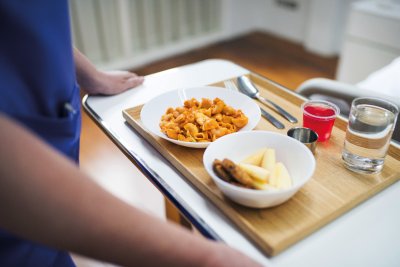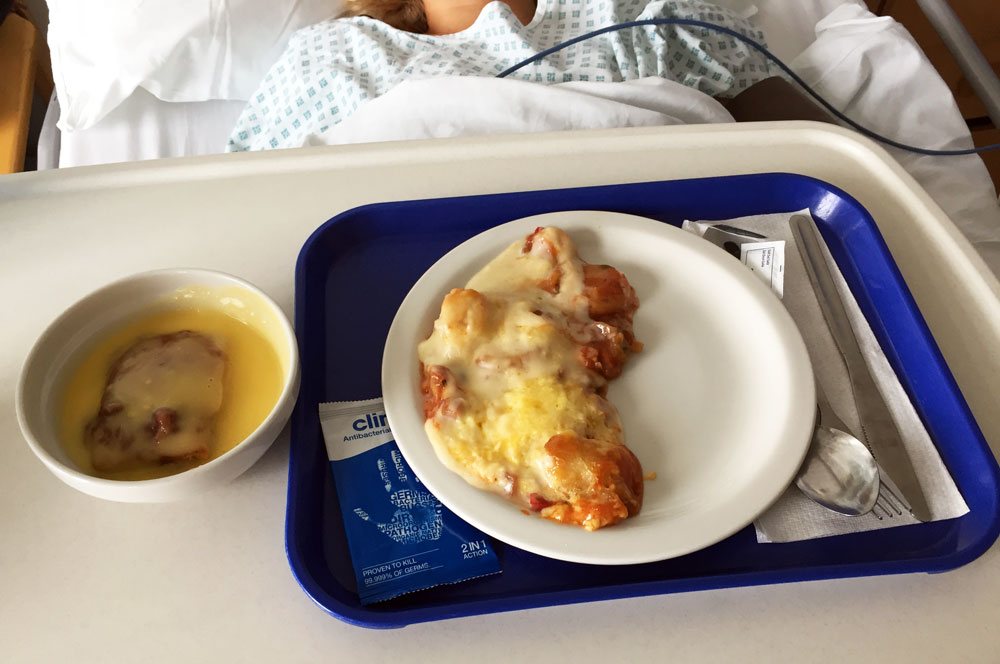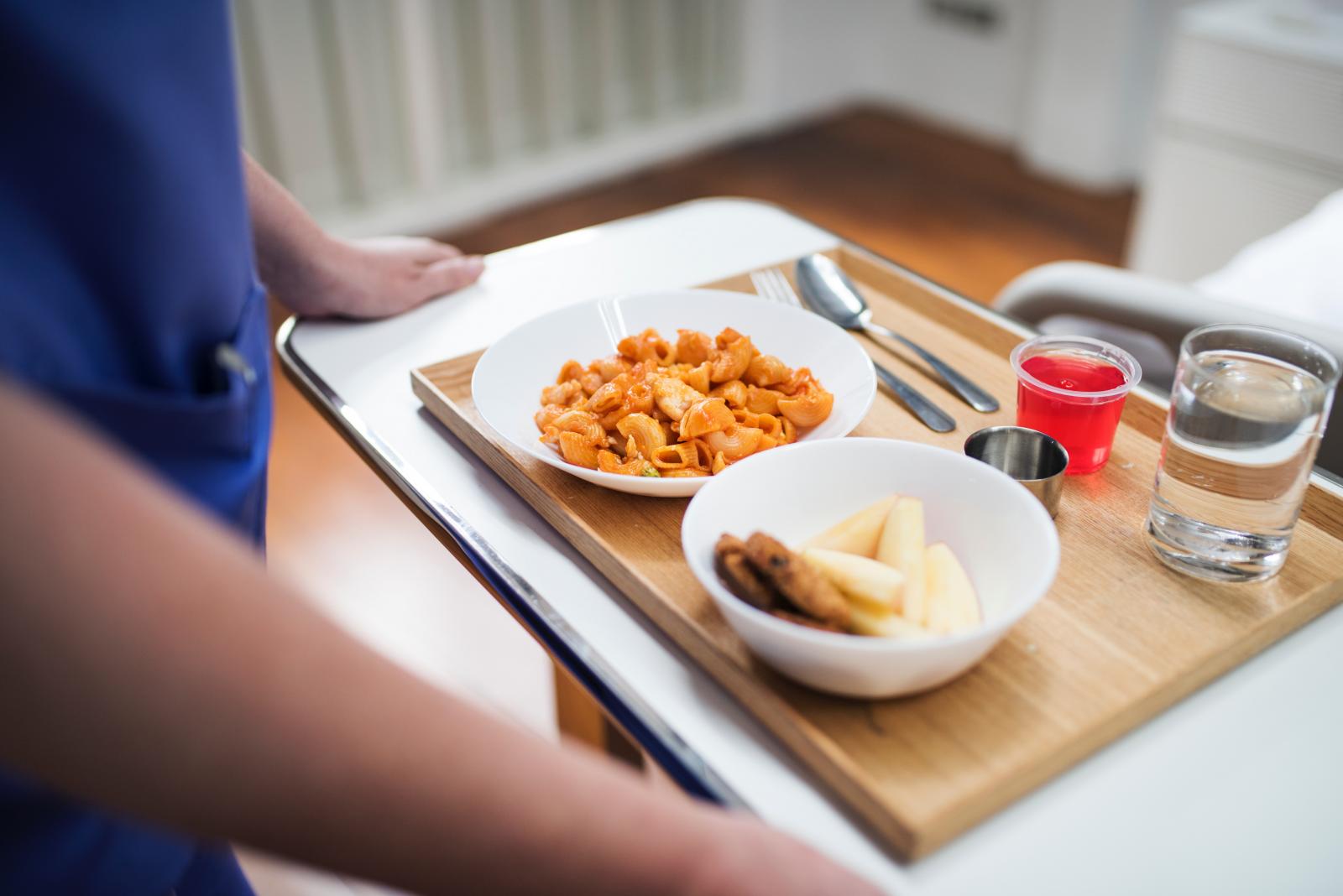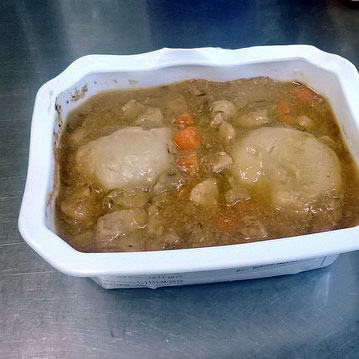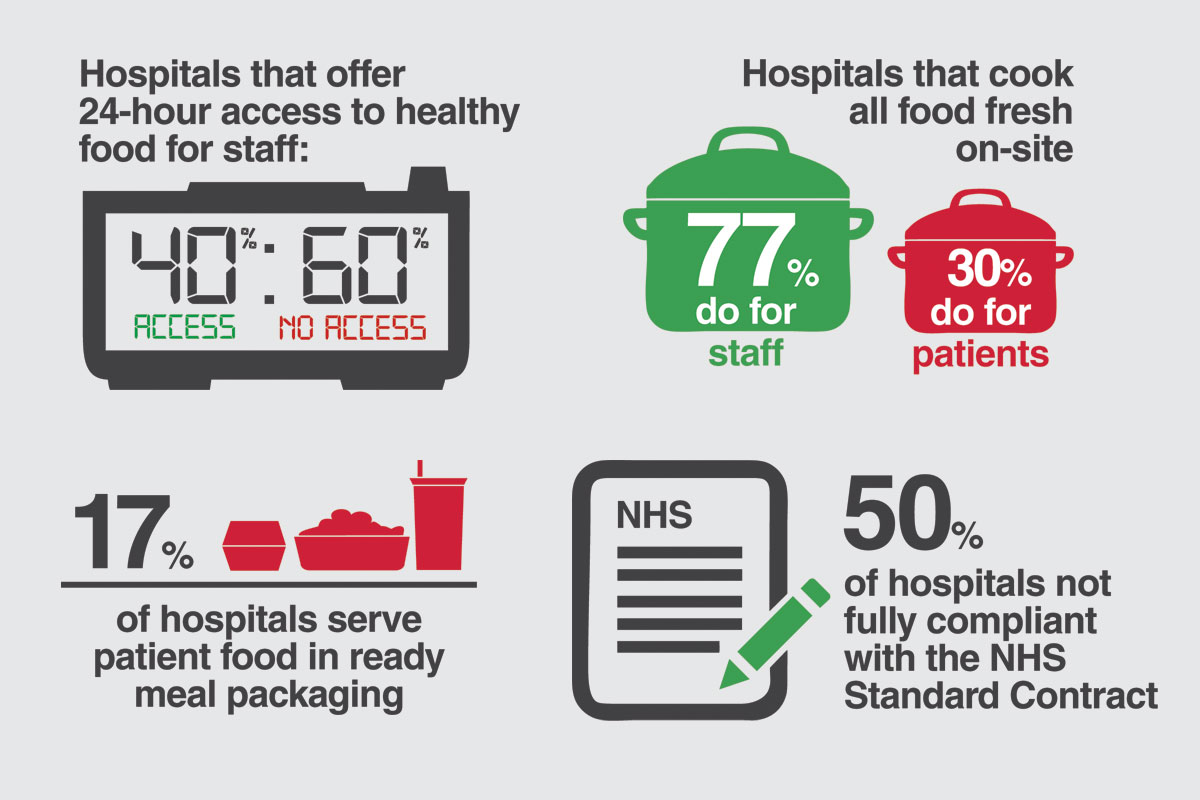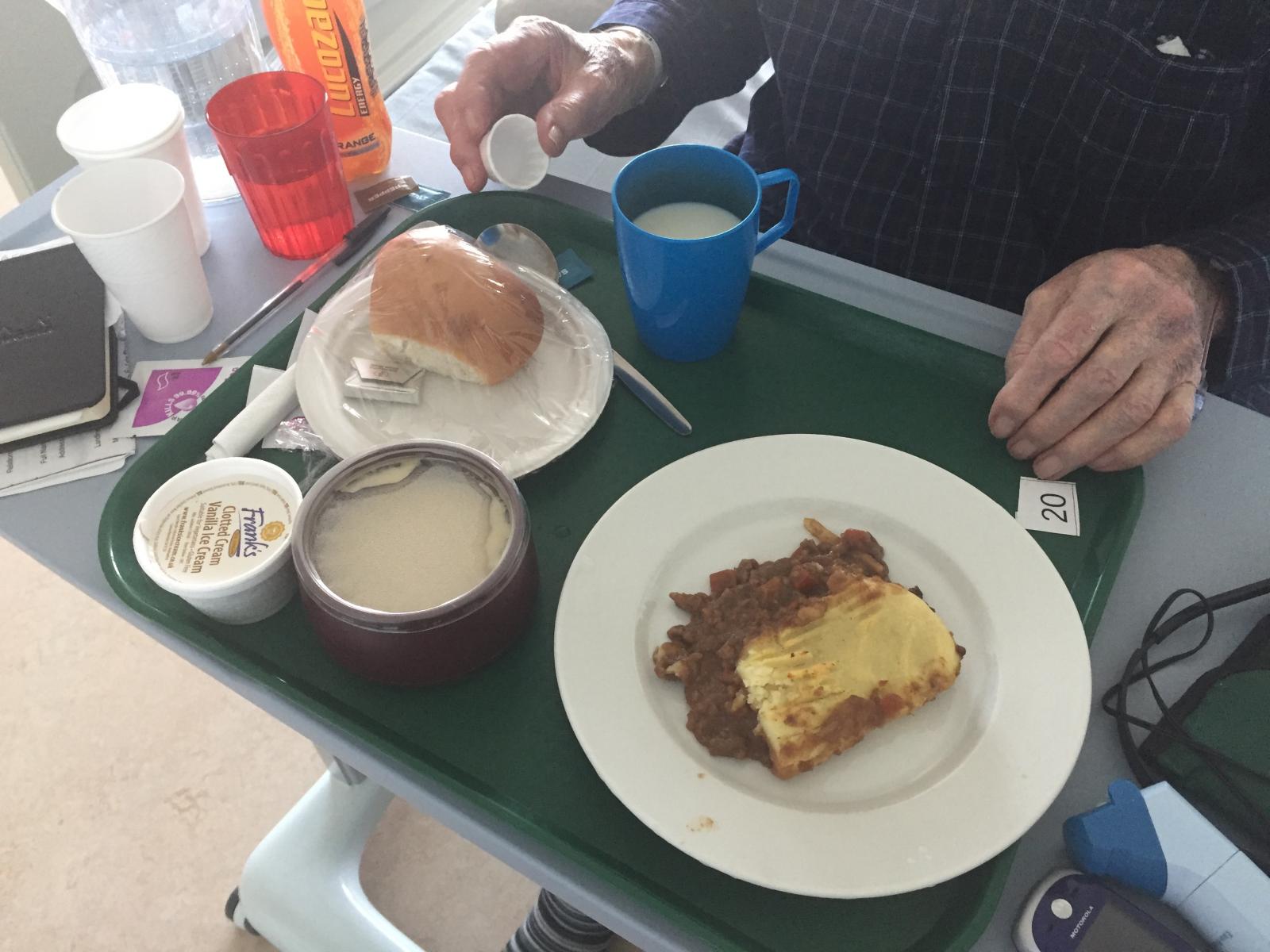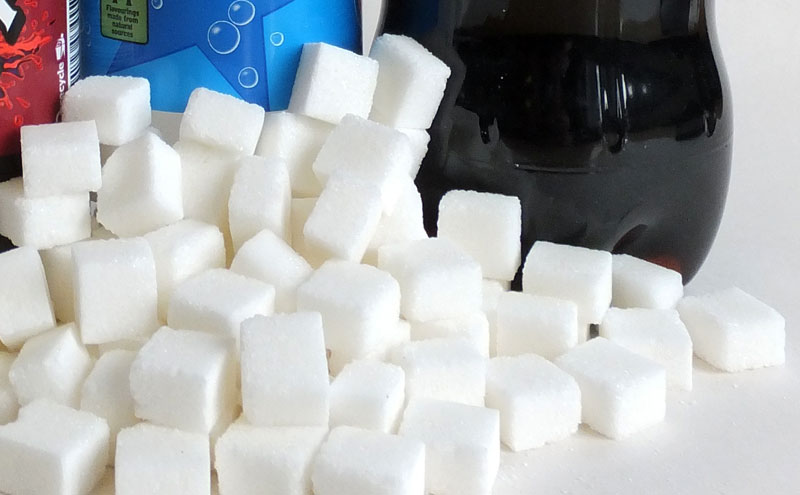The report, to be published on Tuesday, will warn that the lack of minimum standards for food served on hospital wards in England means many patients are having put up with poor meals with little nutritional value.
Local health authorities are allowed to determine how much they spend on food in their hospitals, leading to wide fluctuations in quality. Many hospitals in England operate on a food budget of less than £3 per patient per day, with less than £1 spent on each meal.
The new report has been written by The Campaign for Better Hospital Food, which is backed by several high-profile chefs and cookery writers, including Loyd Grossman and Albert Roux.
It says more than 82,000 uneaten hospital meals are thrown away each day and that 67 per cent of hospital staff would not want to eat the food they serve to patients.
Calling for minimum standards of nutrition to be set nationwide for hospital food, the campaign said: “While a handful of hospitals in England have introduced hospital food standards to improve patients’ meals, the government’s reliance on voluntary initiatives to encourage the adoption of food standards at all hospitals has failed.”
According to the campaign nationwide standards would ensure that hospital food promotes health by reducing saturated fat, sugar and salt, and meets recommended dietary guidelines for patients,
The Scottish Government set such minimum standards in 2005, with the Welsh Government following suit three years later. In 2011 Westminster set minimum nutritional and environmental standards for food served in government departments, prisons and part of the armed forces.
Roger Goss, of the group Patient Concern, said: “The problem is that hospital food is a low priority and it is getting worse because of the squeeze on local budgets. The whole thing is a lottery.
“There are minimum standards for food in schools and prisons, so why not for food in the NHS? The quality of hospital food is an integral part of recovery.”
Earlier this year researchers found that long delays meant that hospital food was often cold and inedible by the time it was served on wards, compared to prison food which was served soon after being cooked.
As a result around a quarter of meals served in hospital go uneaten, leaving patients without the nutrients they need to aid recovery.
Dr Nick Johns, of Bournemouth University, said: “Hospital food leaves kitchens fine, but when it reaches bedsides it’s a mess.”
A Department of Health Spokesperson said: “There are many fantastic examples of really good food across the NHS thanks to forward thinking and innovative staff. But, we recognise that there is too much variation across the country – that is why we have implemented a tough new inspection programme. With our army of thousands of patient assessors we will drive up standards and reduce variation in hospital food.
The department said it supported the principle of food standards but did not think that national legislation was the way to achieve this.
The spokesman said: “We believe that the best decisions on hospital food are those taken locally by chefs and catering managers. Patients are the ones who consume hospital food and they are best-placed to decide what is good and what is not.”##
Sunday 25 August 2013
Daily Telegraph
Better Hospital Food: The campaign represents a coalition of organisations calling on the Westminster government to introduce mandatory nutritional, environmental and ethical standards for food served to patients in NHS hospitals in England.

